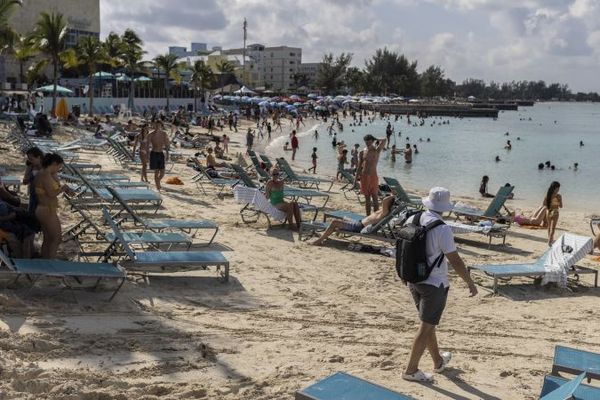

Safety concerns at popular destinations are a critical aspect of any travel experience. Planning ahead and proactively mitigating potential risks is essential for a smooth and enjoyable journey. This article explores key safety issues at popular tourist spots and offers practical strategies to safeguard yourself while traveling. It covers various aspects, from avoiding petty theft to navigating crowded areas and staying informed about local laws and customs. We’ll delve into the importance of awareness, preparedness, and proactive measures for a safe and secure trip.
Understanding the Landscape of Safety Concerns
Common Risks in Tourist Hotspots
Popular tourist destinations often attract large crowds, which, unfortunately, can also attract opportunists. Theft, scams, and pickpocketing are common concerns in these areas. Visitors should be vigilant in high-traffic areas and popular attractions, as these are often prime targets for criminal activities. This awareness of your surroundings is paramount to mitigate these risks.
Safety Hazards Associated with Crowds
Getting separated from your travel companions in crowded areas is another common concern. Navigating busy streets, marketplaces, or tourist attractions requires a heightened sense of awareness. It’s vital to establish communication strategies with your group and to agree upon a meeting point if you get separated. In extreme situations, local authorities can be involved for help.
The Role of Local Laws and Customs
Understanding the local laws and customs of your destination is equally important. What may be considered acceptable behavior in your home country could be deemed inappropriate in others. Thorough research about local customs and any specific regulations can help avoid any misunderstandings or unintended conflicts. A good strategy is to look at local travel advisories and guidelines from credible sources.
Staying Alert in Crowded Areas
Maintaining Vigilance in Transit
When traveling by public transport or in crowded areas, it is essential to be aware of your surroundings. Avoid displaying expensive items openly, keep your belongings close, and use anti-theft bags or secure pockets. Stay alert, and if someone seems overly interested in your belongings, move to a safer area. Be wary of anyone offering assistance in crowded areas if it doesn’t feel genuinely helpful.
Protecting Yourself from Pickpockets
Pickpocketing is a common concern in crowded tourist areas. Stay aware of your surroundings, especially in crowded markets, buses, trains, or tourist attractions. Keep your valuables secure. Avoid placing bags or wallets in easily accessible places where they might be picked. Using a money belt can help keep your valuables safe and out of sight. Utilize anti-theft pockets or bags.
Navigating Potential Scams
Recognizing Deceptive Practices
Tourist destinations can be targets for various scams. Be cautious of individuals offering unrealistic deals or services. Research any offers before committing to ensure they are legitimate and trustworthy. Trust your instincts; if something seems too good to be true, it likely is. Always confirm with a trusted authority or a reliable source to verify the authenticity and legality of any offer or proposition.
Responding to Unfamiliar Situations
If faced with an unexpected situation or a potentially suspicious person, do not engage. Move to a safe and well-lit area and contact authorities or a trusted contact for assistance. Remember, staying calm and maintaining awareness are key to reacting appropriately to any unusual situation.
Planning for Unforeseen Events
Emergency Preparedness Essentials
To prepare for unforeseen circumstances, always have a backup plan. Have a personal emergency plan in place and communicate it to someone. It is vital to have access to a contact person in case of an emergency in a different country. Keep emergency contact details on your phone and share them with someone reliable, such as your family or friends. Keep copies of important documents, like passports, in a secure location.
Communicating with Trusted Contacts
Sharing your travel itinerary with someone is crucial for personal safety. Make sure at least one person knows your travel plans, including your accommodation, travel dates, and contact information. Sharing this information with loved ones creates an additional layer of safety.
Embracing Cultural Sensitivity
Respecting Local Customs
Learning about the local customs and traditions of the destination is part of respectful travel. Understanding appropriate attire, communication styles, and social etiquette can help avoid cultural faux pas and create positive interactions with locals. Respecting local customs will enhance your experience and contribute to a safe environment for everyone.
Being Mindful of Your Actions
Travelers should be mindful of their behavior and the impact it might have on others. Be aware of the local norms and customs and avoid actions that might be considered offensive or disrespectful in the destination. Staying informed and being respectful will minimize any potential misunderstandings.
Utilizing Resources for Support
Accessing Local Assistance
Staying updated on local travel advisories and safety guidelines is critical. Before departure, check official travel advisories and warnings from your government’s travel advisory site. In addition, consult with local authorities for specific information on safety in the region. Check for any specific safety concerns or recent incidents in the areas you plan to visit.
Staying Informed and Prepared
Staying connected through reliable communication methods, such as mobile data or international roaming plans, is essential. Having a way to contact emergency services or loved ones in case of an emergency is paramount. This enables you to quickly seek assistance if needed.
Prioritizing Security Measures
Choosing Secure Accommodations
Selecting safe accommodations is a key aspect of a worry-free trip. Research hotels, hostels, or other lodging options carefully, ensuring they have a good reputation for safety and security. Look at reviews and check with travel advisories for areas of concern. Be cautious of unfamiliar or under-reviewed accommodations.
Employing Travel Insurance
Travel insurance offers peace of mind in unforeseen circumstances, including medical emergencies or lost belongings. It covers potential costs and offers support during emergencies. Insurance can significantly reduce anxieties while exploring popular destinations.
Adapting Your Travel Style
Practicing Responsible Travel Habits
Practicing responsible travel habits includes minimizing your impact on the environment, respecting local cultures, and being mindful of potential safety risks. It means staying informed and being respectful during your stay in the region. Responsible travel can minimize any potential safety concerns or mishaps.
Embarking on well-researched journeys
Before traveling, thoroughly research the destination, including safety concerns, local customs, and transportation options. Learn about local transportation and areas to avoid, and always share your itinerary with someone.
Staying Vigilant in Urban Environments
Understanding City Safety Concerns
Urban environments often have specific safety concerns. Be mindful of the neighborhood you’re visiting, whether you are walking through the city, or using public transport. Be alert of potential risks and stay updated about any ongoing safety issues in the area.
Employing Strategic Navigation Techniques
Strategic navigation techniques can enhance safety while exploring cities. Choosing well-lit and populated areas for walks at night, and using trustworthy transportation apps for navigation can greatly reduce safety concerns in urban settings. Utilizing GPS navigation tools, or mapping apps, can help enhance your safety during city exploration.
Frequently Asked Questions
What are the most common safety concerns at popular tourist destinations?
Common safety concerns at popular tourist destinations often include petty theft, scams, pickpocketing, and getting lost. In some cases, there may also be concerns about public safety, local laws, or natural disasters. Understanding potential issues specific to a destination and taking proactive measures can help mitigate these risks.
How can I stay safe during my travels, especially in crowded areas?
Staying safe in crowded areas, whether you’re at a popular destination or a less-traveled spot, involves constant awareness of your surroundings. Keep valuables close, avoid displaying large amounts of cash, be wary of overly friendly strangers, and trust your gut. Learn basic phrases in the local language; this can ease interactions and help you navigate if you get lost. Don’t hesitate to ask hotel staff or local guides for assistance or recommendations. Additionally, if you’re in an unfamiliar area, choose well-lit and populated paths.
What are the best tips for avoiding theft at popular tourist destinations?
To avoid theft at popular tourist destinations, avoid displaying expensive items openly, such as flashy jewelry or high-end electronics. Keep your wallet and phone secure in a money belt or inside your front pocket or a secure bag. Consider using anti-theft bags for your essentials, or other anti-theft technologies. Be wary of anyone offering you assistance in a crowded area without asking or seeming too eager. Don’t get distracted by strangers’ offers to help. Learn basic travel safety techniques.
In conclusion, staying vigilant about safety concerns at popular destinations is crucial for a safe and enjoyable trip. By understanding potential risks, taking precautions, and being aware of your surroundings, you can significantly reduce the chances of encountering problems. Remember to research destinations thoroughly, share your itinerary with someone, and stay connected. Stay informed and prepared for any unexpected situations. By prioritizing safety and being proactive, you’ll be well-equipped to have a memorable and secure travel experience. Plan your next adventure with safety in mind!